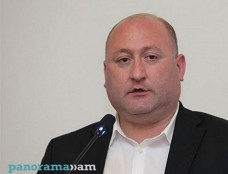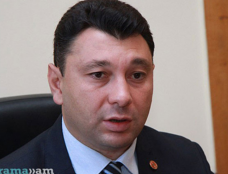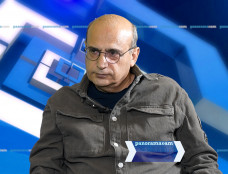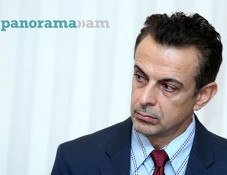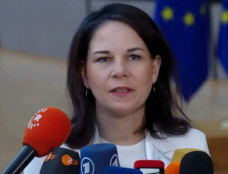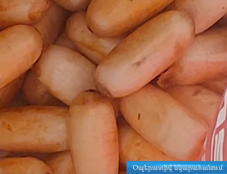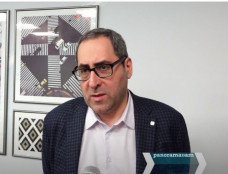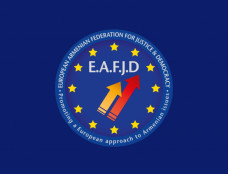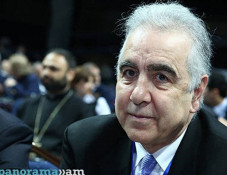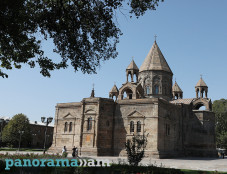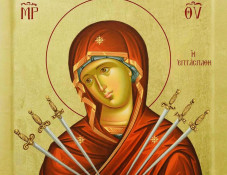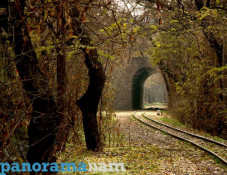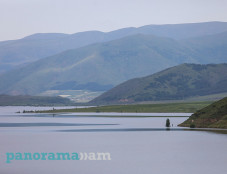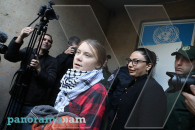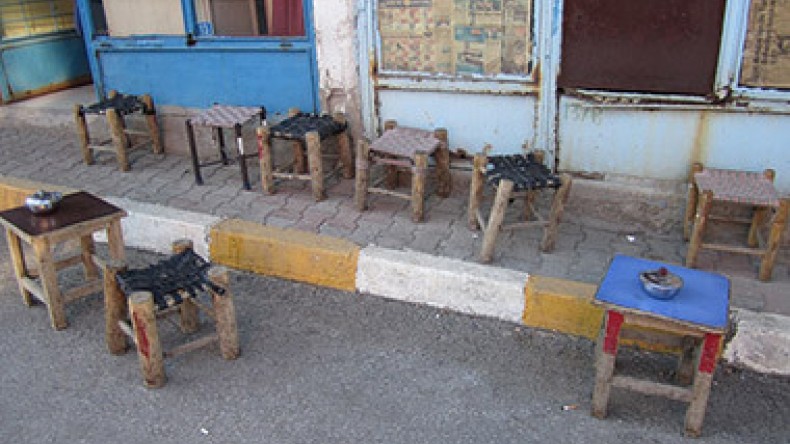
Depriving Anatolian Armenians of education
By Garen Kazanc, from The Armenian Weekly
At the delicate age of 13, my grandfather started his first day of school at the local technical school in Sivas, Turkey. He and his friend Nishan, the only other Armenian in the school, sat side by side in the front row of the classroom. It was on the third or fourth day that the vice principal of the school abruptly showed up in the classroom and said, “Melkon and Nishan, please report to the principal’s office. Bring your backpacks and all of your belongings as well.”
They walked towards the principal’s door confused and frightened. Once they entered the office, the principal put out his cigarette and, without any hesitation, told them to sit down.
Then he began, “Unfortunately boys, there’s no more room in the school for you both. I’m afraid you need to find a new school.”
Not knowing what to say and with tears in their eyes, they both held their backpacks tight, refusing to let go, and begged, “Please, we will do anything to stay. We want to go to school. We want to learn.”
Their pleas were ignored and they were sent home.
My grandfather said the walk home that day was the longest walk of his life. They cried and cursed and cried some more. From that day on, after being refused from every other school they applied to, they never stepped foot inside a classroom again.
This was my grandfather’s story, but what about the others?
It turns out that all of his Armenian friends were also expelled from school. This was the case not only for the Armenians of Sivas, but of all the Armenians living in Anatolia. I have yet to meet an Anatolian Armenian, especially an elderly man, who received a full education. Almost all of them were forced out of school with the flimsiest of excuses.
My grandmother, who received exceptionally well grades, was expelled from school after students complained that she received better grades than them. Others, like my uncle, were expelled because they chose to be called by their Armenian names rather than their Turkish renditions. The excuses were always creative and ever so effective. It became obvious that their only fault was their Christian Armenian identity.
After the Armenian Genocide and in the first half of the 20th century, just a couple of dwindling Armenian communities remained in an ocean of a growing Islamic Turkish population. They were products of a destructive storm that had wrecked everything and abandoned what remained like scattered debris In Sivas alone, there were 46 schools prior to 1915; a couple of years later, they were all destroyed. Nevertheless, those who remained continued their struggle. They learned Armenian on their own and held their own church services secretly in their homes. The biggest hurdle for them, however, was systematic neglect.
As Armenians in Istanbul were becoming doctors and architects, their kinsmen in Anatolia weren’t even given the opportunity to learn to read and write. This disparity is something that has always intrigued me. Why were Armenians in Anatolia subject to scrutiny while those in Constantinople lived in relative comfort? Who set these boundaries? Which local governmental edict, if any, prevented Armenians from going to school in Anatolia? Better yet, who told the principal that my grandfather shouldn’t be going to school?
Answers to such questions are almost impossible to find. Nothing is written on paper and there were no formal declarations or documents that openly proclaimed that the education of the Anatolian Armenians should be circumvented. However, history can give us some clues.
We know that during the Ottoman era, the only national autonomous movements to have succeeded were those in the periphery of the Ottoman Empire. For example, Greece, Serbia, and Albania were located in the far-reaching parts of the Ottoman Empire, where life was already semi-autonomous in many ways. Armenia, on the other hand, did not enjoy that luxury. It was deeply embedded in the heartland of the empire. These geo-political circumstances forced the Ottoman government to adopt even harsher measures against the Armenians in order to protect the “heart” of the empire and restore the dignity of the Turkish people.
Even though the Ottoman Empire subsequently collapsed, the sociological consensus remained. Turks throughout Anatolia vehemently held the traditional values and customs that were instilled by their ancestors for centuries. Even with most Armenians gone, those who remained were still under the crossfire. An educated Anatolian Armenian could spell a recipe for disaster. Therefore, they not only had to remain uneducated, but become law-abiding Turks as well. It is no surprise that campaigns of Turkification were most prevalent and effective in Anatolia, where Turkifying the educational system was given a primary role.
There are thousands of cases of Armenian children being deprived of basic education and other basic rights. Although there are many studies on the effects and aftermath of the Armenian Genocide, I have yet to see a study concerning this matter, which I believe will shed more light on Armenian-Turkish relations.
I recently read an article about the village of Govdun in Sivas. After a brief summary of what happened in 1915 was provided, the article ended with this sentence: The “Armenian village life in Sebastia had come to a most tragic end.” Upon reading this, I thought that perhaps the problem also lies with Armenian researchers themselves. Many Armenians are consumed by the idea that everything ended in 1915. But, this type of reasoning greatly reduces the quality of research in the field and creates a moral and intellectual void. I posit that post-genocide Armenians lived harder lives than their ancestors in the Ottoman Empire, who enjoyed full access to schools, benefited from an independent Armenian press, and had numerous churches to attend. The ones after the genocide did not. They received nothing but neglect, including by Armenians throughout the world, who didn’t even know they existed.
This time period was and still is particularly devastating for my family and many other Anatolian Armenians. At a personal level, as the only person in my family to have graduated from a high school, I’ve always felt that the more educated I became, the more of a rift I created between myself and members of my family. The family dynamics in my family took a very serious blow and have entirely shifted. Their understanding of life was far different than mine. They are deeply entrenched in the idea that survival is of critical importance, whereas education can always come later.
Yet, as I learned, this was not their fault. They were the sons and daughters of people who suffered from severe neglect and systematic oppression. And the oppression of those days is still very much a part of my life today. As a family, our education, priorities, careers, and even our last names are all a remnant of this tainted past. Therefore, I always treated school as a place where I could recover what my family had lost over the past century. I felt as though, by stepping into a classroom, I could break this chain of oppression that kept my family hostage for so many years.
But what has been lost for some can never be fully recovered. Which makes me wonder what would have happened if these children were allowed to go to school. Just imagine how much more they could have contributed to the betterment of not only themselves and those around them, but the entire country as well. Armenians have always been instrumental in developing nations throughout the world. Following the genocide, Turkey was going through a massive restructuring project. The Armenians could, would, and should have been an instrumental tool in this process. Armenians, such as Agop Dilacar and Vahram Cerciyan, proved that they too could become helpful in building a new republic, even if it meant a nationalist one.
As for my grandfather, he laments those days daily. After being expelled, he began his long career as a carpenter at the age of 13. He, along with his family, moved to Istanbul so that his children won’t suffer the same fate he did. He continues his profession to this day, which involves making and repairing small wooden objects such as doors and tables. Although he has been working for decades, he nonetheless enjoys his job and is very content. In fact, at his current age of 86, he still wakes up every morning to go to his workshop. Yet, whenever I see him, he always repeats the same somber lines, “Oh, my son, if they only let me go to school, I wouldn’t be repairing these tables and doors, I would’ve studied and become an architect or an engineer!”
“It’s ok, Dede,” my response has always been. “I’m going to school for us both.”
Born in Paris to Armenians from Turkey, Garen Kazanc moved to Los Angeles at a young age, where he attended and graduated from the Armenian Mesrobian School in 2006. He received a B.S. degree in sociology from Cal State Los Angeles. He has been an active member of Hamazkayin and the Armenian Poetry Project.
Newsfeed
Videos





